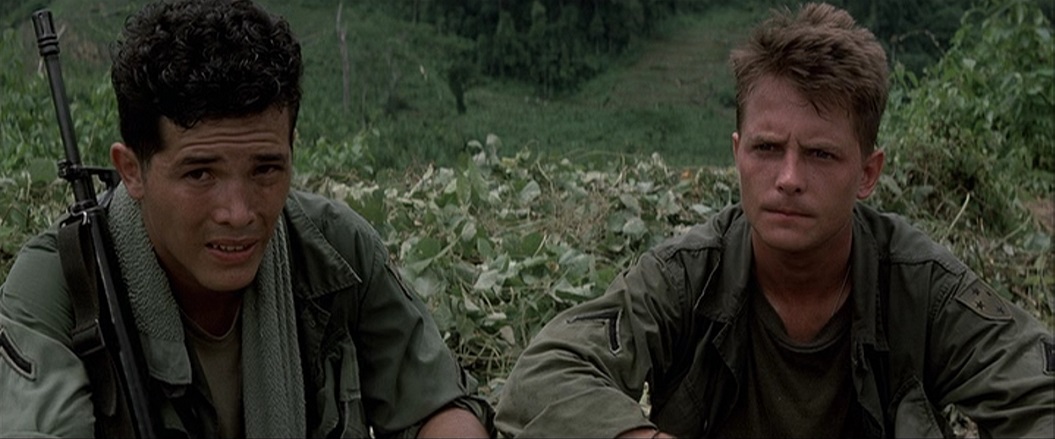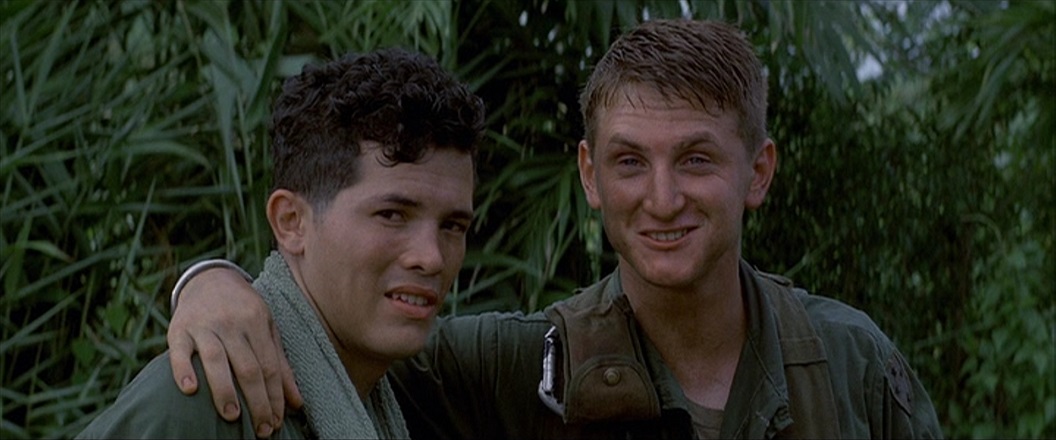UNSUNG CINEMA FEATURE AT MOVIE FINATICS LOOKS AT DE PALMA'S 'CASUALTIES OF WAR'

At Movie Finatics, the latest "Unsung Cinema" feature looks at Casualties Of War. Here's the start of it:
To put it simply, Brian De Palma’s Casualties of War is a devastatingly sad anti-war drama. Based on actual events of the 1966 incident on Hill 192 during the Vietnam War, a Vietnamese woman was kidnapped from her village by a squad of American soldiers who raped and murdered her. It’s essentially about morality and how there is an innate sense of right and wrong in a dire situation like war, or is it all about survival? It’s about following orders or going along with the crowd vs. standing up for some injustice you’ve seen, no matter the cost. It’s also about the brutality of violence, the trauma of war, the brutality of masculinity, and the brutality of misogyny. These are not pleasant subject matters to deal with on screen. Not a film where you gather the family for a night of escapism at the movies. You’ll likely never forget Casualties of War after seeing it, and it’s all the greater because of it.By 1989, Vietnam pictures had become a staple in American cinema. Films like The Deer Hunter, Apocalypse Now, Platoon, and Full Metal Jacket came out with tremendous success and fanfare. Oliver Stone’s Born on the Fourth of July was released later that year with immense success. They told the horrors of the Vietnam War at a time when Americans were beginning to reexamine that terrible criminal nightmare. By the time Casualties of War came out, it had received some excellent reviews but did not do well at the box office. Critics like Siskel and Ebert liked the film but did not give it as high of marks as they did Platoon. The timing of the release clouded the critical reaction at the time. It also was out during the infamous Summer of 1989 with films like Uncle Buck, Batman, Parenthood, The Abyss, When Harry Met Sally, Lethal Weapon 2, and Turner & Hooch were going strong. For a film with a genuinely tricky subject matter like the one it portrays to compete with these more mass entertainment films was asking a lot. For De Palma, this came after the tremendous success of The Untouchables. Casualties of War, and The Bonfire of the Vanities, would lead to a career setback for him.
Like most De Palma films, though, Casualties of War has undergone critical reexamination and praise. However, it’s still not considered as significant as more infamous Vietnam films like the ones mentioned above. I’m here to argue that it is just as monumental and maybe one of the most powerful anti-war films ever made. I almost hesitate to call it a war film because while there are few battles and action scenes, it’s more about the moral problem faced by our main character and the horror unleashed on an innocent Vietnamese woman. De Palma films in his usual theatrical style which I love a lot. Big set pieces, dramatic music, and appalling beauty. He usually boiled down his films to three or four big visual set pieces. You’ll never come out of a De Palma film not interested in visual storytelling. That’s who De Palma is at heart, is a visual cinematic storyteller. He’s one of my all-time favorite filmmakers, and my love of visual storytelling comes from films like his and Hitchcock.




